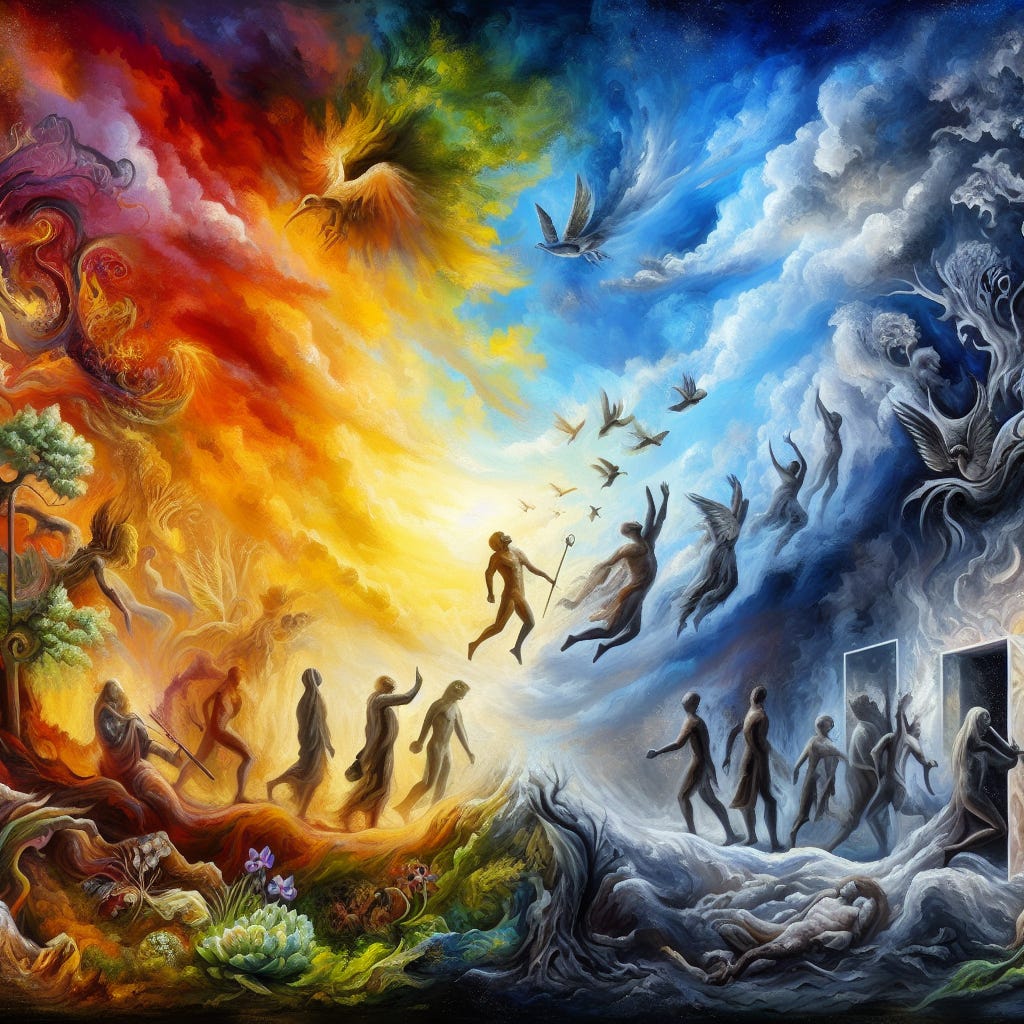Embracing the Ash: From Pain to Purpose
Shiloh, with a name echoing the biblical site of sanctuary, was a soul sculpted by suffering. Not simply by the external slings and arrows of outrageous fortune, but by a keen awareness of the "legitimate suffering" woven into the very fabric of existence. From birth, they navigated a world pregnant with both beauty and brutality, joy and sorrow, life and death.
Their early years were marked by a quietude born of observation. Shiloh watched the leaves fall, not with melancholy, but with a deep acceptance of the inevitable cycle of renewal. They saw the struggle of fledglings learning to fly, not with anxiety, but with awe at the inherent cost of freedom. The world was a tapestry of pain and triumph, and Shiloh understood that to deny one thread was to unravel the entire design.
This acceptance didn't shield them from personal hardship. There were storms that threatened to drown them, moments where the question of life's worth gnawed at their bones. But in the crucible of pain, Shiloh discovered the embers of radical resilience. They learned to rise from the ashes, not by pretending the fire wasn't real, but by acknowledging its heat and harnessing it to forge a stronger spirit.
This wasn't about stoicism or indifference. Shiloh grieved deeply, mourned lost dreams, and felt the sting of injustice. But within the well of sadness bloomed a resilience fueled by gratitude. They found solace in the sun's kiss on their skin, the wind whispering through the leaves, the laughter of a stranger. Life, in all its contradictions, was a gift, and Shiloh, like the saguaro cactus, learned to thrive amidst the harshness.
Their path led them towards a community of seekers, kindred spirits who acknowledged the inherent suffering and sought not to escape, but to transmute it. In their shared vulnerability, Shiloh found strength, in their open hearts, acceptance. They learned to practice radical resilience not just for themselves, but for others, offering a hand through the darkness, whispering words of hope amidst despair.
Shiloh became a beacon, a testament to the power of facing reality head-on. They knew that true joy wouldn't exist without sorrow, true love wouldn't exist without loss. Accepting suffering allows Shiloh to let go of the need for control and embrace vulnerability. This "free yes" to their own pain enables them to connect authentically with others and experience life more fully. Suffering wasn't a bug, it was a feature, a crucible that forged compassion, empathy, and an unyielding spirit.
Their journey was far from over, new storms would brew, new losses would be encountered. But Shiloh, now armed with the wisdom of acceptance and the fire of radical resilience, faced the future with open eyes and an open heart. They knew that even in the midst of darkness, the stars still shone, and they would walk on, carrying the light of their understanding for as long as they could, knowing that one day, it would be passed on to another soul, another seeker on the path to becoming whole.
This is just a part of Shiloh's story, a story rich with potential for exploration. We can delve deeper into their community, their struggles, their moments of triumph. We can explore how they grapple with difficult questions of faith, forgiveness, and the meaning of suffering. Ultimately, Shiloh's journey is a testament to the human spirit's capacity for resilience, a reminder that even in the darkest night, the dawn always waits.






